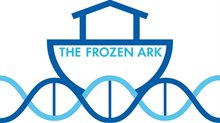This article is pulled from the groups webpage (with some slight editing) : www.frozenark.org
The earth is now suffering the greatest loss of species since the extinction of the dinosaurs. Over the next thirty years it is predicted that more than 1,000 species of mammals, a quarter of the world's total, and a similar proportion of birds, amphibians and marine animals (both invertebrates and vertebrates) will go extinct. Thousands of invertebrate species have already disappeared after the destruction of their habitats.
Despite efforts to preserve their environments, at least 30% of all land, fresh-water and marine animals will go extinct within the next fifty years. Growth in human populations has led to habitat destruction caused by the need for agricultural land, by over-fishing, by pollution, and by the acidification of the oceans. These changes are well documented by the United Nations Environment Programme, the International Union for the Conservation of Nature and by meetings at The Royal Society.
The Frozen Ark Project was set up in 1996 as a response to this crisis, a modern version of Noah's Ark, designed to save thousands of creatures from extinction
Its objective is simple - to save samples of frozen cells containing DNA from endangered animals before they go extinct. Almost every single cell in an animal carries a complete blueprint of the animal stored in its DNA. Unless we save this information now it will be lost forever.
Currently the Frozen Ark database hold details of 28604 frozen DNA samples. Of these 7083 are from species listed in the IUCN Red List of endangered animals.
If they are frozen under the right conditions, many cells can be revived and regrown. Recent developments in molecular biology suggest that in the not-distant future animals could be recreated from these cells.
The frozen samples can also help currently endangered animals that have not yet gone extinct, to stay healthy by increasing genetic variation within their populations.
The Frozen Ark has now established a consortium of twenty-two major zoos, aquaria, museums and research institutions in eight countries around the world.

 RSS Feed
RSS Feed
